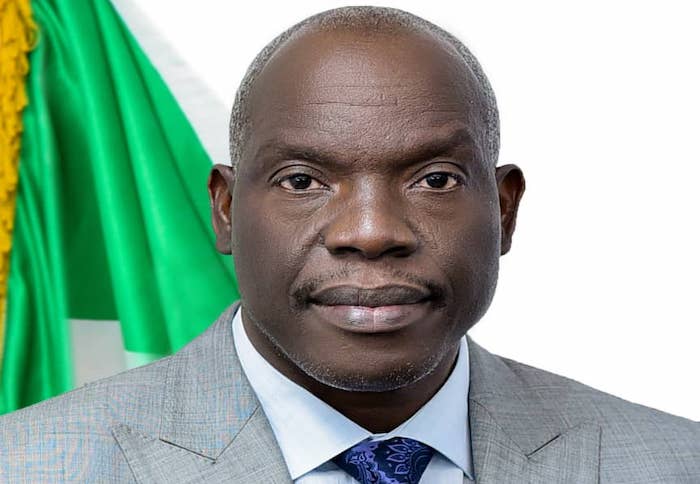
The Nigerian Upstream Petroleum Regulatory Commission (NUPRC) says the country’s total annual upstream capital expenditure decreased from $27billion in 2014 to less than $6billion in 2022.
The News Agency of Nigeria (NAN) reports that the Chief Executive of NUPRC, Mr Gbenga Komolafe, revealed this on the sideline of the World Petroleum Congress (WPC) in Calgary, Canada.
Komolafe, represented by the Executive Commissioner, Mr Kelechi Ofoegbu, said the figure represented a 74 per cent decrease in the capital expenditure (CAPEX).
He attributed the decline in CAPEX to several factors, while emphasizing that regulatory uncertainty significantly impacted investment in Nigeria’s oil and gas industry.
Komolafe further said that prevalent in the years preceding the enactment of the Petroleum Industry Act (PIA) also affected investment in the industry.
The News Agency of Nigeria (NAN) reports that the event was jointly organised by Crabtree Consulting, the Gas Aggregation Company of Nigeria (GACN) and CarbonAi x-rayed.
The topic was “Nigeria and Canada: Collaborating to Decarbonise Nigeria’s Oil and Gas Sector”.
He listed other factors as de-funding of fossil fuel development occasioned by energy transition and the global call for decarbonisation.
According to him, most International Oil Companies (IOCs) deprioritised Nigeria in their portfolios which led to the redirection of CAPEX to other countries with attendant dwindling investment in Nigeria’s upstream sector.
“This under-investment impacted negatively on the country’s rig count. On average, Nigeria had 17 active oil rigs in 2019 representing one of the highest counts in the African continent as at then.
“The average rig count declined to 11 in 2020, seven in 2021, 10 in 2022, but recently grew to as high as 31 by August 2023, a positive signal of new investments trickling into the country.
“The relatively high crude oil prices may also be attributed to the increase in activities in the petroleum upstream sector.
“We also see this as a reflection of investors’ acceptance of the PIA and its effective implementation by the regulator.
“The projected outlook over the next few years looks promising, and as the regulator in the oil and gas upstream sector, we will leverage on this opportunity by doing all that is necessary to attract more investments and revamp the Nigerian upstream sector,” he said.
The NUPRC boss added that the PIA has repositioned the Nigerian petroleum sector by creating efficient and effective governing institutions, with clear and separate roles for the industry.
According to him, it has also provided for enabling transparency, accountability, and fostering a business environment conducive for petroleum operations.
He explained that since the enactment of the PIA, the Commission has developed 24 priority regulations which would give meaning and intent to the spirit of the PIA and create a predictable regulatory environment for operators and other stakeholders.
On energy transition, he reiterated the need for oil and gas producers to embrace the reality of green transition and take strategic positions to leverage the opportunities presented by the unfolding era.
“With Nigeria’s huge gas reserves of 208.83 TCF and a potential for an increase to about 220 TCF within the next 10 years, Nigeria has adopted natural gas as our transition fuel in our stride at developing cleaner fuels and staying on track with our net zero emission commitment of 2050
Unfolding events have equally shown that natural gas is our destination fuel, with a projection that gas will form a significant part of the energy mix for Nigeria by year 2030 and beyond.
“In recognition of this, the government has designed the Decade of Gas programme to ensure that gas actually plays a role to lift us from the challenges that confront us in order to drive industrial development,” Komolafe explained.
Earlier, the Chief Upstream Investment Officer, NNPC Upstream Investment Management Services (NUIMS), Mr Bala Wunti, said reaching net zero would require improvements to the enabling environment, robust project preparation and tapping different sources of finance in a coordinated manner, considering each country’s context whether developed or developing.
He said in his presentation titled, “Decarbonising Nigeria’s Oil and Gas.”
Wunti, represented by the Asset Manager, Group PSC (Production Sharing Contract), NUIMS NNPC Ltd., Mr Justus Derefaka, hinted that pursuing a net-zero emissions pathway comes at a very high price tag.
He added that gas use for power would need to increase to meet rising electricity demand until 2030.
“Delivering Nigeria’s current NDC requires strong gas uptake across the economy, including 80 per cent of cars being powered by Compressed Natural Gas(CNG) and 50 per cent of the population using Liquified Petroleum Gas(LPG) for cooking by 2050.
NAN also reports that the five-day conference has the theme: “Energy Transition: The Path to Net Zero”.
The 24th WPC has recorded no fewer than 15,000 visitors from over 100 countries, 5,000 delegates and over 200 national and international exhibitors.











